In a day of great interviews on educational transformation, numerous CEOs, directors of companies and foundations, and educational leaders presented their actions and ideas in the auditorium of tickmas in the Buenos Aires Book Fair. And they highlighted the need for a world in which new perspectives are heard.
Kneading dreams, weaving hopes
The CEO of Pro Woman, Carmen Correa, spoke of the “social enterprise that for more than 33 years has been seeking and working to advance in terms of gender equality.” Pro Mujer is an organization that emerged in the 1990s in Bolivia and expanded to 23 countries throughout Latin America, carrying the three motor axes that drive the project: financial inclusion, education and access to health services.
“We have impacted the lives of more than two and a half million women,” Correa celebrated by stating that through small loans of around 900 dollars They manage to accompany women to follow their dreams and projects. Through the support of organizations and a payment of interest on the loans, Pro Woman it can finance itself and finance new loans in a virtuous circle as a social enterprise.
Correa also highlighted that Pro Mujer, which has more than 70 Latin American centers, was following the changes in the needs and realities of women. Regarding education, the CEO stated “We seek to permanently innovate in the different programs that we develop. Not only in financial education to which women tend to have little access, and we also focus a lot on digital education”.
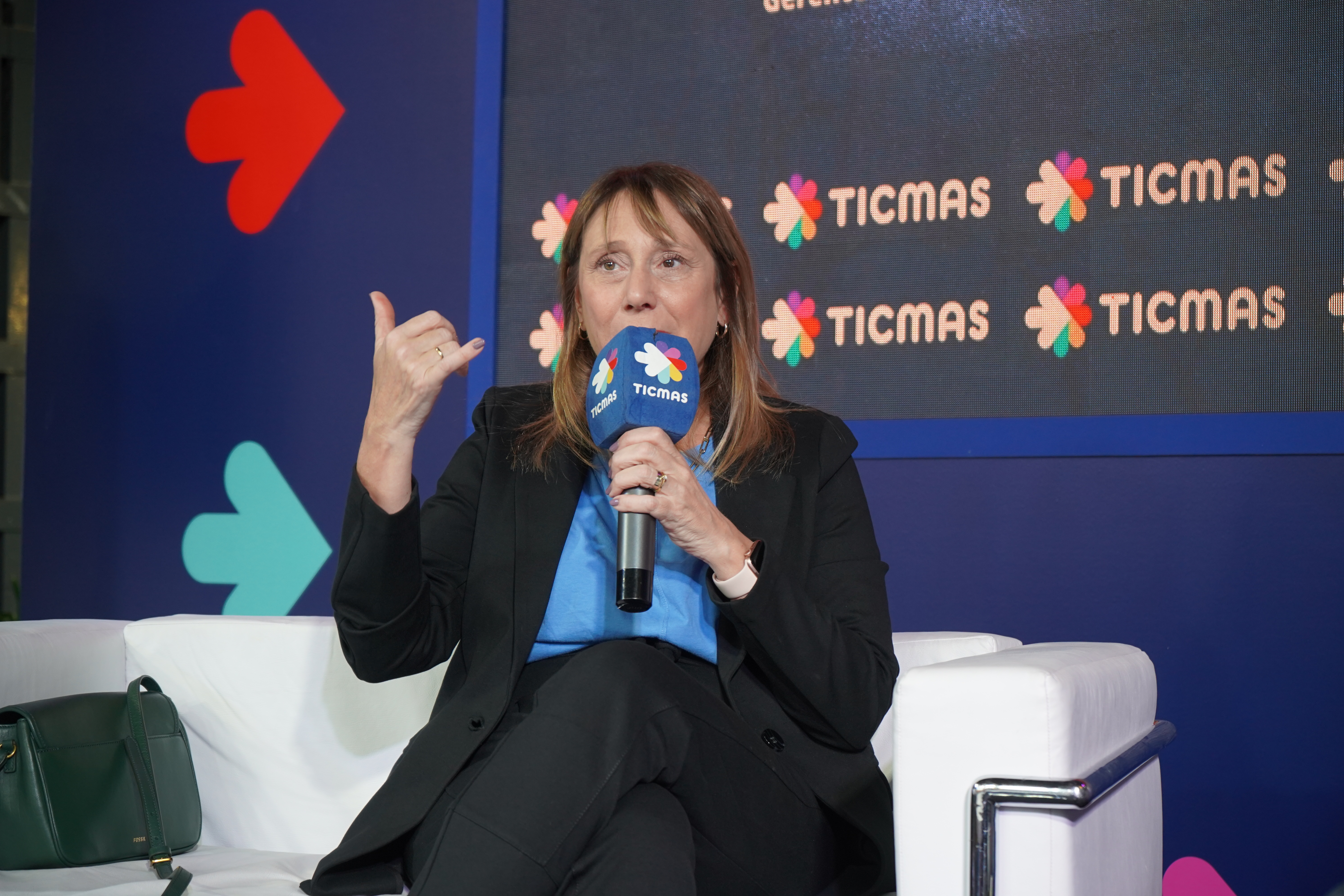
Education and mobilization, towards an integral development of people
The manager of the Natura Institute for Latin America, Karina Stocovaz, highlighted that the cosmetics and personal care company born in Brazil has been working for years to channel educational projects together with governments to improve public education as well as educate women. In addition to having internal programs that invite you to finish high school or university, either through tutors, classes or even WhatsApp; in Natura they also aim at financial education and soft skills for the 21st century.
“We often see that talking about money, saving and dreaming is a problem. Making investments”, reflected Stocovaz, even speaking of the domestic budget. The trainings are necessary since “generate autonomy and are key to the quality of life of women”. Another of the great axes is digital education; Stocovaz stated that the pandemic further highlighted the shortcoming that many workers have in the use of digital tools and how they created a program where women teach other women.
On the participation of Natura in the Araucaria project, from Varkey Foundation, the Director pointed out the importance of being able to exchange ideas with ministers and educational teams regarding management and thus transform the agenda with current needs. “Projects by themselves cannot change the system,” said Stocovaz, stressing that for this reason it is necessary to “work on public policies”
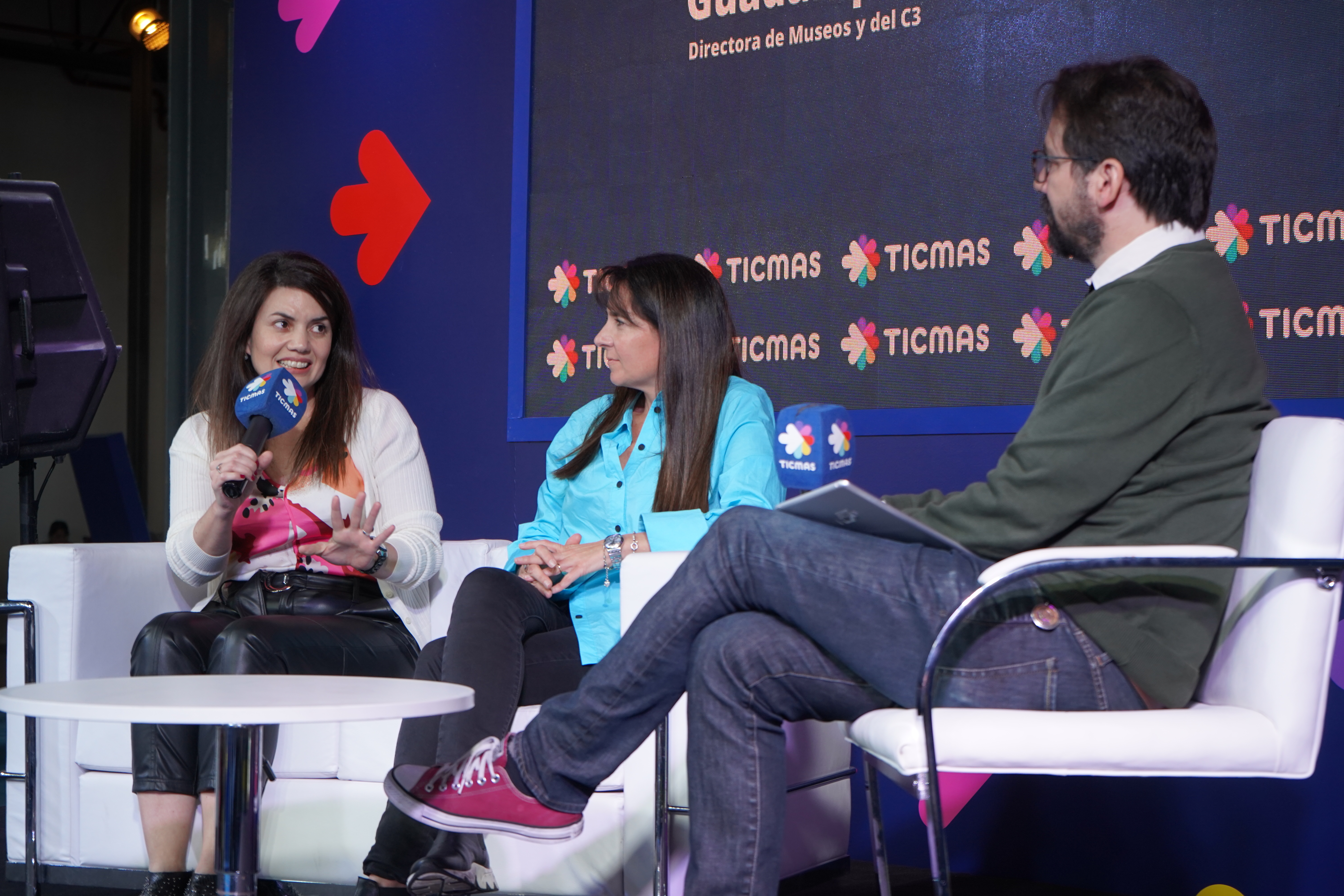
Communicating science: the impact of knowledge in society
Guadalupe Diaz ConstanzoDirector of Museums and the C3and carla sabbatinifrom the School of Education San Andres Universitywere present in the auditorium of tickmas to talk about science and sustainability.
“Argentina is a country, in relation to global statistics, quite atypical”, Díaz Constanzo pointed out when thinking about the participation of women in the so-called hard sciences. And he added: “We have more than 50% women scientists participating as researchers. The focus is on detail, since this percentage of women does not reach leadership positions; or for example, in the case of Computer Science, women do not usually turn to it en masse and that is why from C3 they work to change that reality with programs such as numeric (for girls between 16 and 18 years old with topics such as cybersecurity, app development, video games, data science, among others)
For his part, sabbatini highlighted that in San Andrés, the gender issue is taken a little broader than the choice of a career, although from the classrooms they try to inquire about “what happens with the awakenings of the scientific vocations” and what scientific stereotypes we continue to reproduce as a society “fundamentally from the question of meaning: what science do we want to teach in what world and for what vision of the future?”.
Díaz Constanzo also highlighted the importance of empower citizens in scientific debates, as happened with the pandemic or with issues such as climate change, pollution; among other topics. Sabbatini added: “It is difficult for us to wake up to the imminence of changes that will bring us as a society. A first challenge is that awareness that we are not talking about something distant (…) what is important for us is build wiggle room for hope and transformation”.
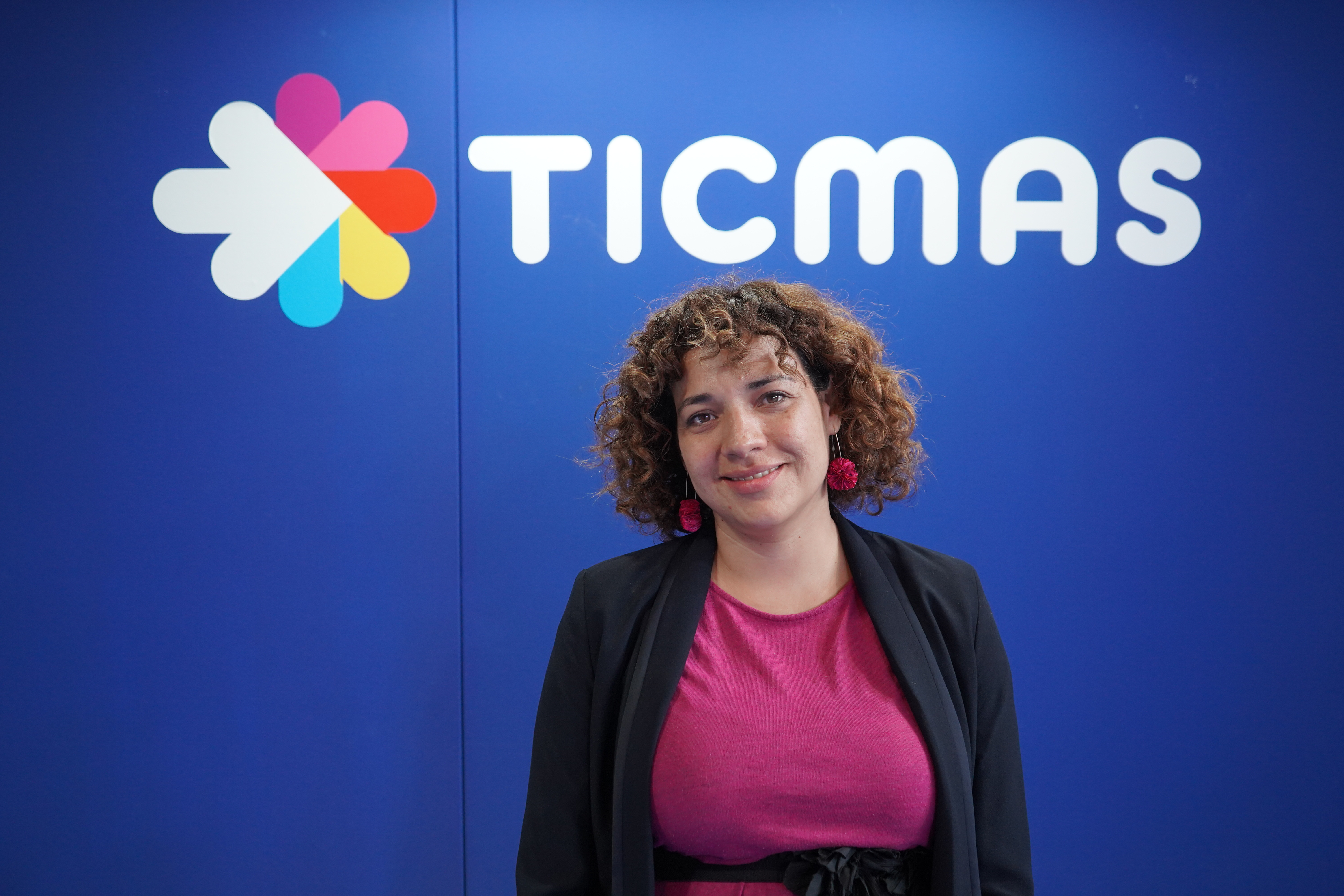
Towards greater educational justice in Argentina
The director of the CIPPEC (Center for the Implementation of Public Policies for Equity and Growth), Gala Diaz Langou, also spoke in the Ticmas auditorium of social and educational justice. Díaz Langou celebrated the implementation of an extra educational hour in primary schools, although he stressed that there are still a multitude of problems in secondary education that need to be addressed. “Two out of ten boys and girls finish high school on time and in the right way”, stated the Director, pointing out that adding two hours to the secondary school day would be a great step.
Regarding the world of work and its link with education, Díaz Langou highlighted that there is a concern that today “exceeds employers, which was what happened more frequently in the past, but we understand that there is a need to align in a in a much better way what happens inside schools with what is later demanded by the labor market also due to a matter of perceived usefulness of the educational system that is later behind the so-called dropout or school exclusion”.
From CIPPEC they work to systematize the information for governments and to be able to work in advance on the risks that may arise and interfere with the education of young people. It is an innovative program in the country that works with early warning systems for bullying, a harmful family environment, unemployment and other problems that may affect continuity in school.
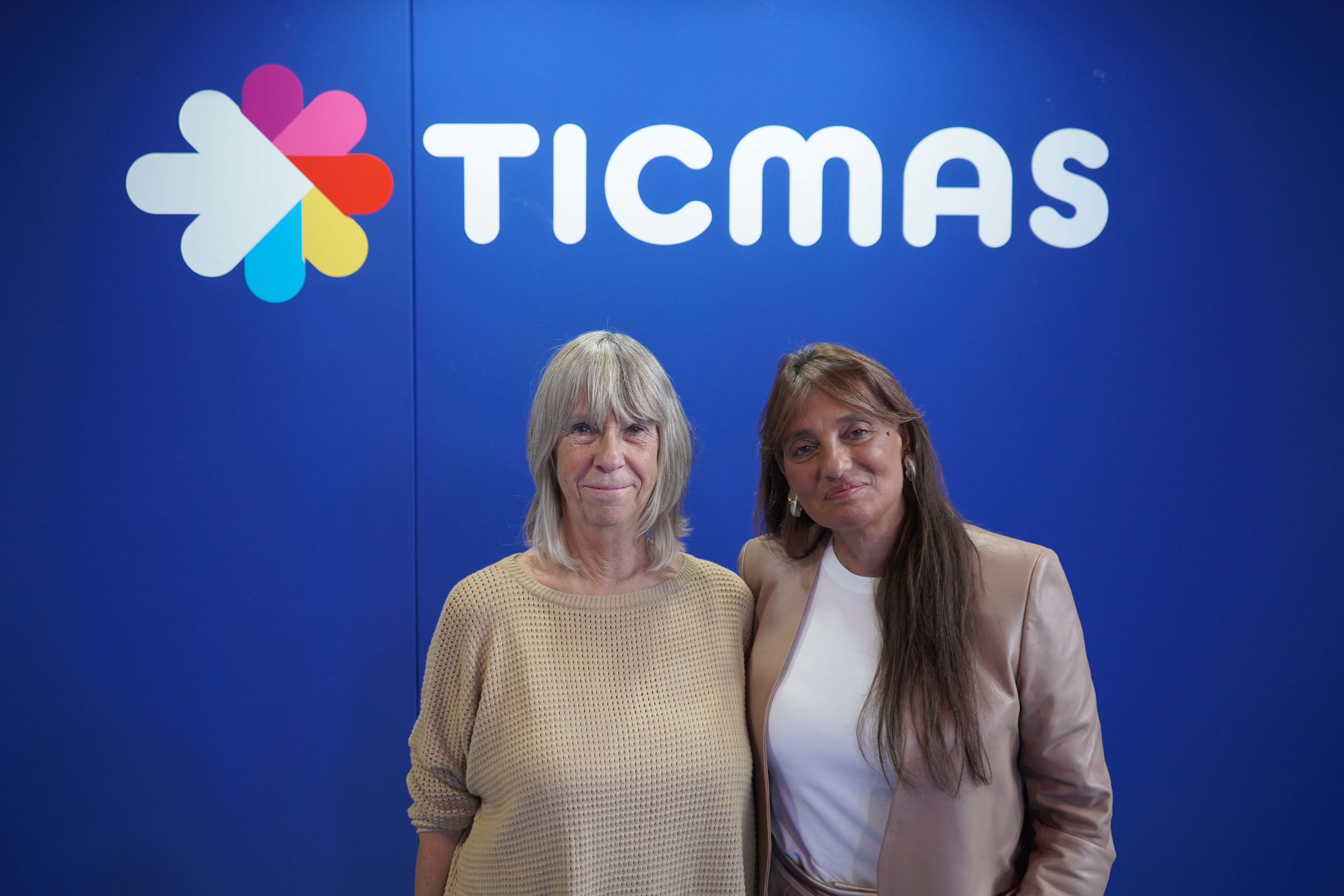
Women at the forefront of science-technological ventures in Latin America
The general manager of WISE (Women in STEM Entrepreneurship), Silvia Torres Carbonell She began the talk by recounting her passion: “My relationship with education comes from when I was little. She played the teacher, put all my dolls and taught them what she had learned at school ”.
“Just as animals are trained and plants are cultivated; Human beings educate each other from the time we are born and that is wonderful”, reflected Carbonell and added: “This is how we managed to change attitudes and behaviors (…) and when I founded my company I felt like a teacher to my collaborators, helping them to develop and since 1998 I had the opportunity to enter the IAE; the business school of the Austral University as a teacher and as founder of the first center for entrepreneurs in Argentina”.
When it was created WISE –with the support of funds from the IDB Lab— four years ago, the goal was “Developing innovation in Latin America, which is what will get us out of the situation we are in, aiming at female talent, which I believe is essential to incorporate, no longer as a right of women but as a duty to contribute to society from the feminine perspective”
“Twelve thousand women have been impacted for the different WISE programs”, Carbonell celebrated and highlighted the network community with which they work with Universities and the NAVE projects that support SMEs and startups.
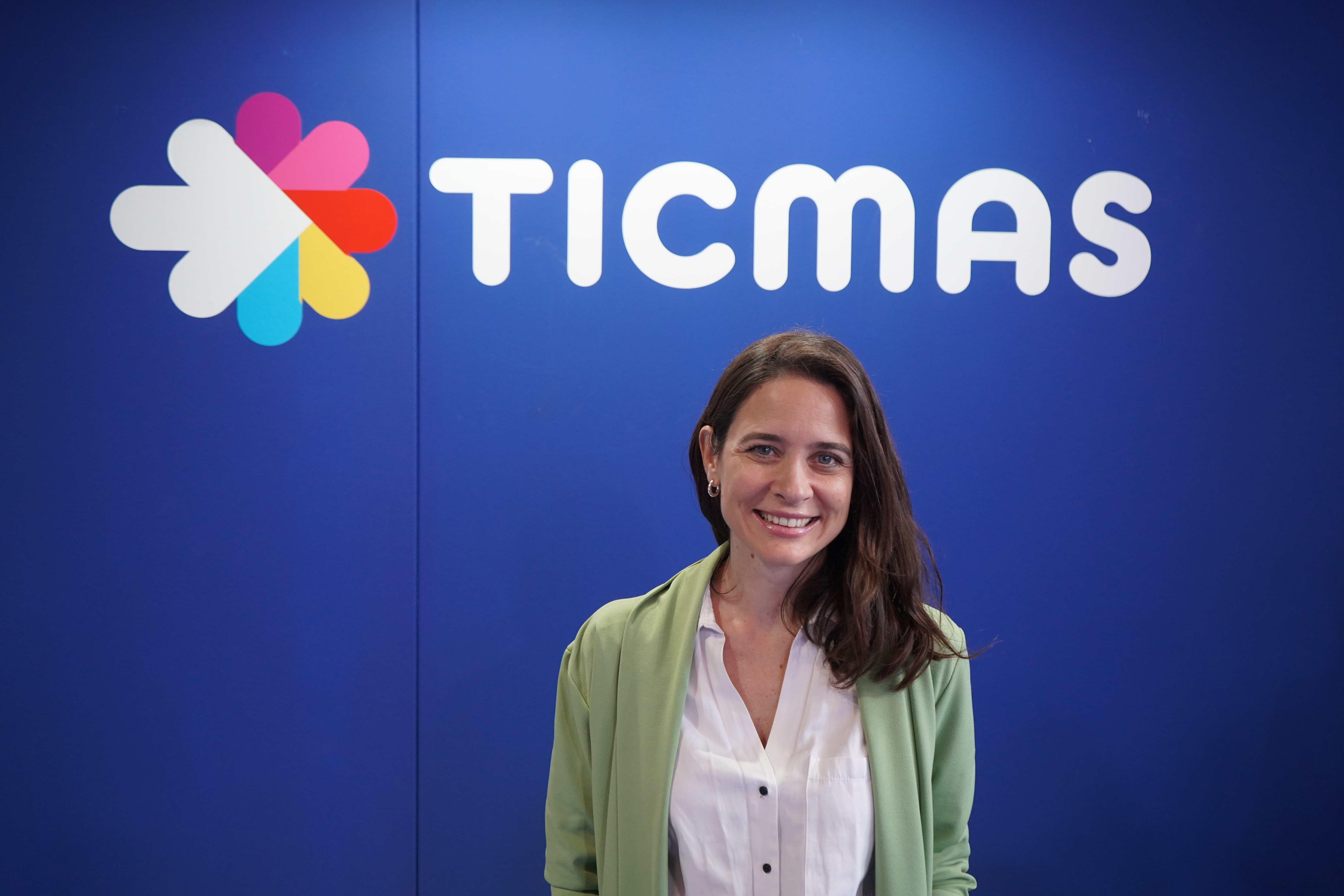
A world of change agents
The executive director of Ashoka for Argentina, Uruguay and Paraguay, Maria Merolatold the public present that the term that names the foundation “is a word in Sanskrit –the ancient language of India– which means active absence of sadness. And that way is what we understand that social entrepreneurs do”.
For more than forty years, Ashoka has focused globally on people who are often seen as “crazy, dreamers, activists”, but which are actually true change’s agents who seek transformation and true innovation in social and environmental problems.
“We work a lot with the Education Ministries in Provinces to train teachers and how to bring agents of change to the classrooms”, highlighted Merola and another focus is also placed on non-formal education with young people and organizations. The director assured the importance of “thinking big to make a change” before or during adolescence and hence the importance of reaching the classroom.
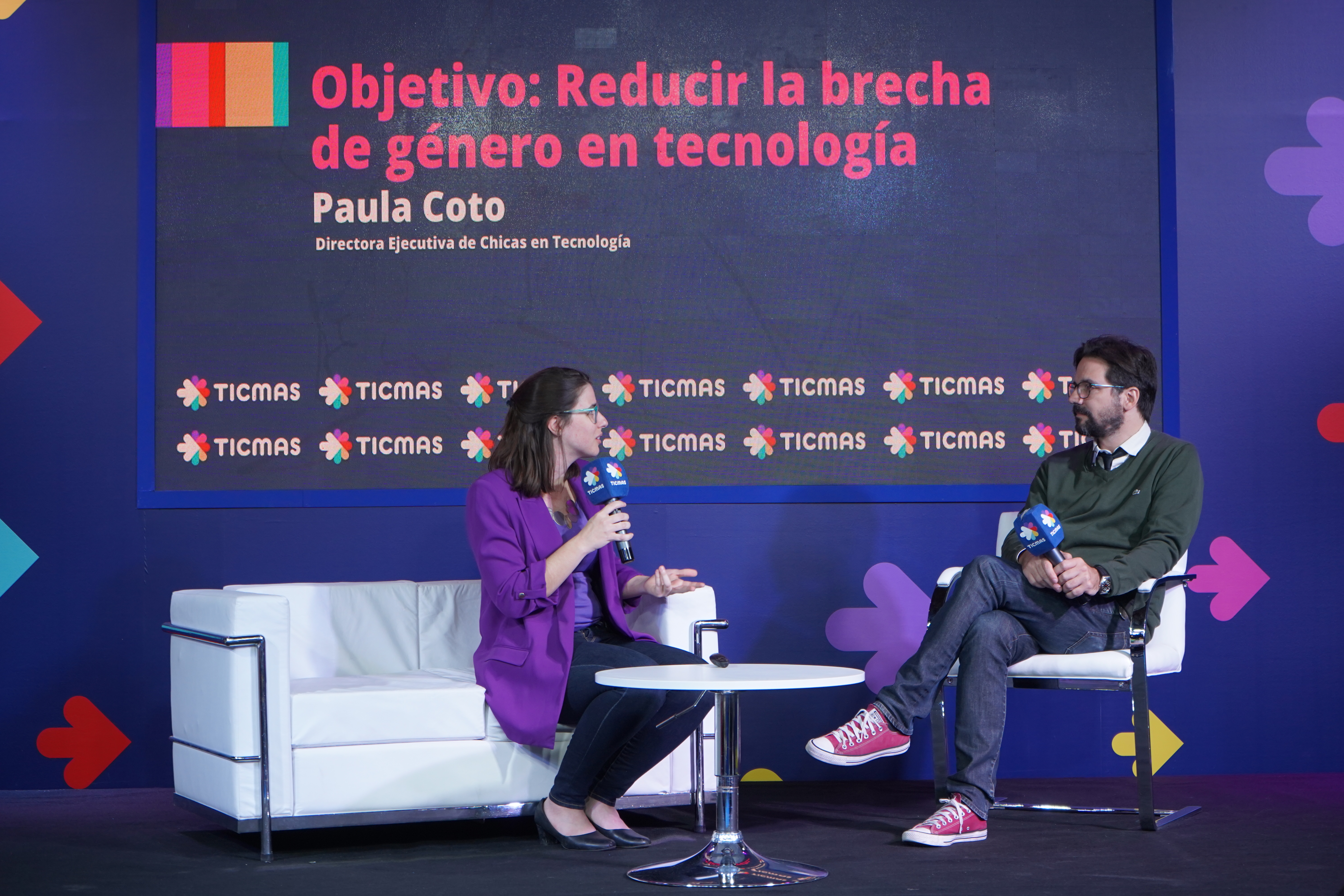
Objective: Reduce the gender gap in technology
The executive director of Girls in Tech, Paula Cotogave a presentation in which he explained the objectives of the organization and explained that what they are trying to do is rethink the “Low access, participation and promotion of women in the areas of technology and innovation”.
Some of the figures they handle is that “85% of 10-year-old girls admit they are not good at math” or that “0.5% of 15-year-old girls want to become a science and technology professional”; among other.
“More than half of the young women who come to our programs do not know of any woman as a reference in the areas of technology,” Coto stressed and stated that we must begin to think that: “Technology has a very broad perspective and is a tool that allows us to intervene in our environments from innovation”. In addition, Coto indicated that stereotypes continue to distance women from technology and she spoke of the social responsibility that we have to make a change in the face of this.
NEWS IN DEVELOPMENT

